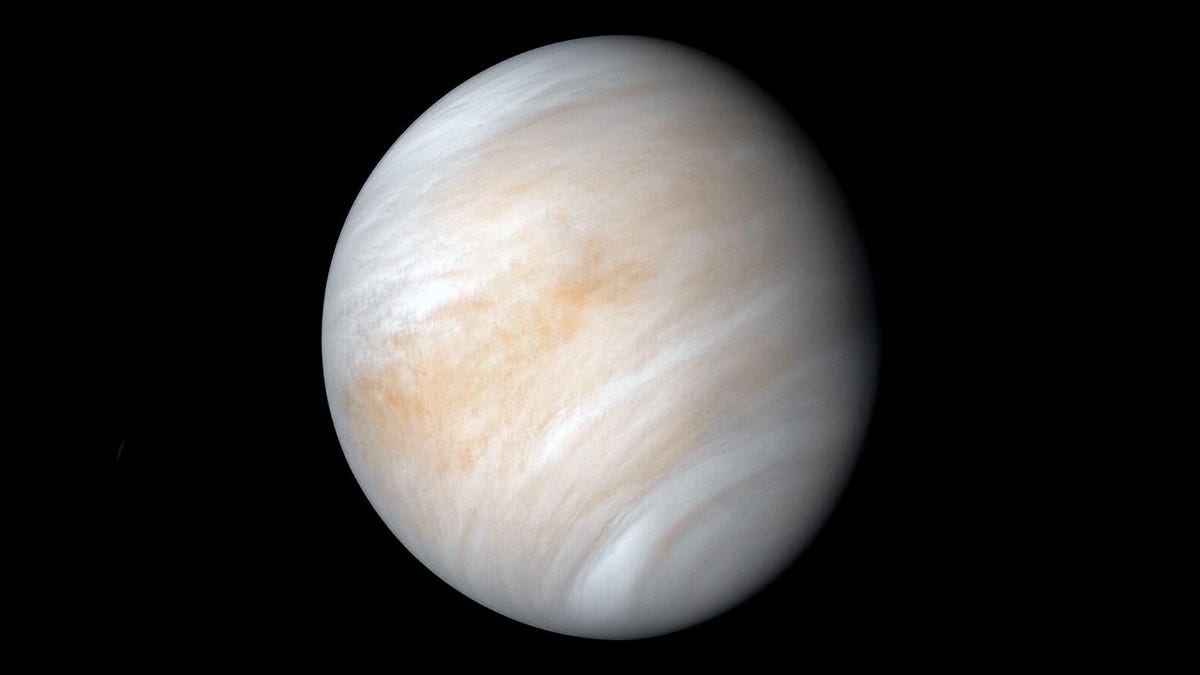The search for alien life on Venus is getting a new funding boost
A day after potential biosignatures in clouds above our neighboring planet were announced, a major funder is throwing cash into investigating further.

NASA's Mariner 10 spacecraft got a look at Venus in 1974.
Well that was quick. A day after scientists announced the discovery of phosphine gas in the clouds of Venus, a potential signature of life, a new privately funded initiative will investigate the possibility of tiny aliens in the Venusian atmosphere and weigh the potential of an exploratory mission to our planetary neighbor.
The Breakthrough Initiatives, founded by Israeli-Russian entrepreneur and scientist Yuri Milner, announced the new project Tuesday in a release.
"Finding life anywhere beyond Earth would be truly momentous," Milner said. "And if there's a non-negligible chance that it's right next door on Venus, exploring that possibility is an urgent priority for our civilization."
Breakthrough also funds efforts to look for potential radio signals from distant alien civilizations and Breakthrough Starshot, which aims to send a tiny spacecraft to Alpha Centauri, the nearest star system beyond our own.
The new Venus effort will be led by MIT's Sara Seager, a leading scientist in the search for exoplanets and signs of life beyond Earth, often referred to as biosignatures.
Seager and her colleagues were involved in this week's landmark discovery, as well as earlier research proposing a hypothetical life cycle explaining how microbes might survive and thrive floating up and down through the toxic atmosphere of Venus for eons.
"We are thrilled to push the envelope to try to understand what kind of life could exist in the very harsh Venusian atmosphere and what further evidence for life a mission to Venus could search for," Seager said.
The details are scant right now on what, specifically, Breakthrough is funding or the exact amount it will be investing in new research. The important takeaway is that Monday's announcement has excited science boosters enough to start throwing money at it without delay. NASA administrator Jim Bridenstine also put out a call on Twitter Monday to "prioritize Venus."
It seems Mars is about to have some heated competition as a top destination for our robots. Stay tuned, earthlings.

